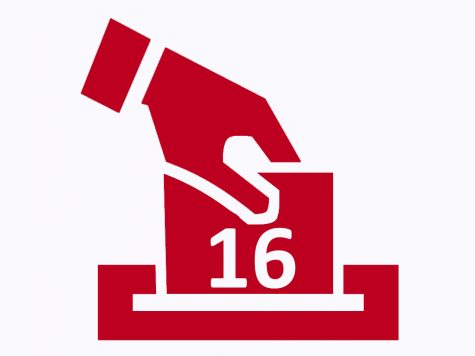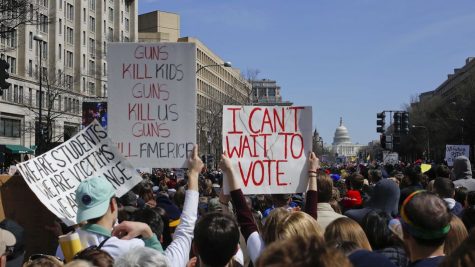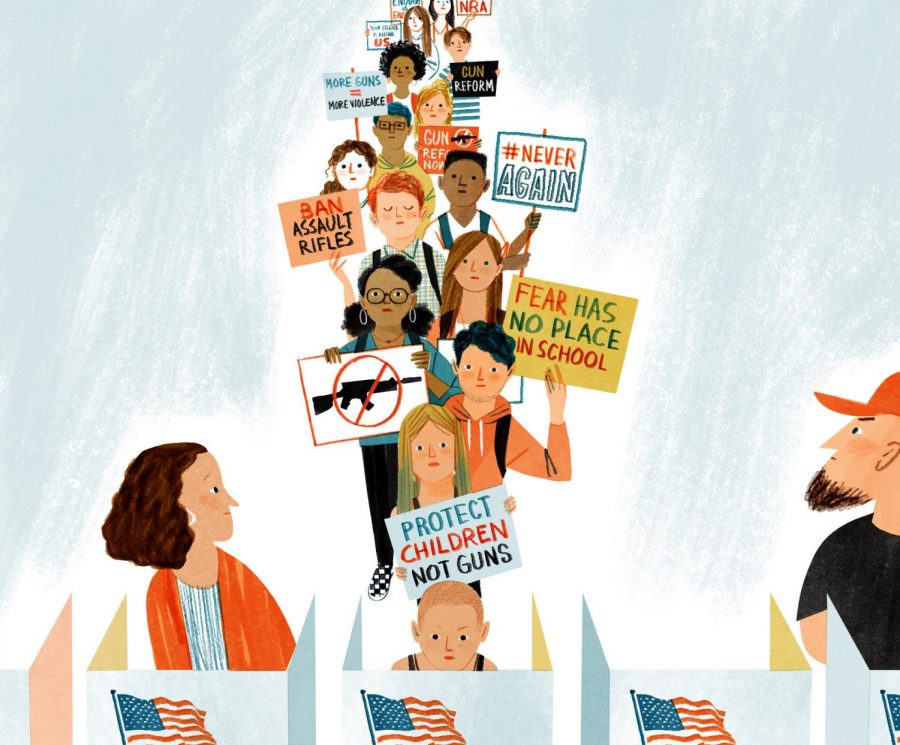Voting Age Should Be Lowered to 16, From a Tax-paying Teenager
This November, millions of Americans will be going to the polls to vote for Trump or his lucky (or maybe unlucky, see 2016) challenger. Yet, at the same time, voter turnout is low, with only a 55.7% voter turnout in the 2016 election. For a country that prides itself on its democracy and proper representation of the people, it seems ironic that nearly half of the people that can vote in our democratic elections do not. Whether it be negligence or fear of getting lost in the crowd, these people who don’t vote are wasting their say in the government, especially at a time where a demographic of people who can’t vote are becoming more politically involved than ever. Hence, lowering the voting age to 16 would be beneficial towards American Democracy.
First, let’s get the somewhat trivial reason out of the way. I came up with this article because I’ll be turning 18 this year… one month after the election, meaning that my first presidential election in which I can vote will be in 2024. It feels kind of unlucky to be born just one month after the cutoff, and I couldn’t imagine how a person would feel if they were born on the day after the election day of 2020 (the requirement is that you have to be 18 on the day of the election to be allowed to vote; some states allow primary and caucus voting at 17 if they reach 18 on election day). To win some poetic justice for such people, this problem would disappear if we lowered the voting age to 16. Now, some may argue that this fix would not solve anything and would just push the unlucky situation to a younger generation, but here is where the serious portion comes into play.
 Many states allow people to work starting at the age of 16 (unrestricted hours, 14 under restricted hours and certain jobs, and a bunch of other caveats). Once a student starts working, they have to pay this nifty thing called an income tax, which is used to fund local infrastructure and pay governmental programs. In other words, the income tax applies to ALL people who work, regardless of age. A person who pays taxes to help run the government should also have a say in how the money gets used, but not giving suffrage to a crucial part of the population that pays taxes is equivalent to “taxation without representation,” a phrase Americans should be familiar with. Simply said, if governments want to continue taxing teenagers for their hard work, at least give them a say in how things are run. Now, 14 years olds also pay taxes, but the tricky thing with allowing 14-year-olds to vote is that a majority of states require parental/school consent to get a child working permit if they are between 14 and 16, making this proposition somewhat unrealistic and unlikely to gain approval given the logistics and legality of the situation.
Many states allow people to work starting at the age of 16 (unrestricted hours, 14 under restricted hours and certain jobs, and a bunch of other caveats). Once a student starts working, they have to pay this nifty thing called an income tax, which is used to fund local infrastructure and pay governmental programs. In other words, the income tax applies to ALL people who work, regardless of age. A person who pays taxes to help run the government should also have a say in how the money gets used, but not giving suffrage to a crucial part of the population that pays taxes is equivalent to “taxation without representation,” a phrase Americans should be familiar with. Simply said, if governments want to continue taxing teenagers for their hard work, at least give them a say in how things are run. Now, 14 years olds also pay taxes, but the tricky thing with allowing 14-year-olds to vote is that a majority of states require parental/school consent to get a child working permit if they are between 14 and 16, making this proposition somewhat unrealistic and unlikely to gain approval given the logistics and legality of the situation.
In addition to paying taxes, more than ever, today’s youth are pressing for political change, as clearly seen in the March For Our Lives movement and the Climate Change Strike. These kids are arguably more politically active than some of their dissenters and would gladly have the right to vote on the topics/candidates they are passionate about. Democracy thrives on a diversity of opinions (most of the time, at any rate), and having a youthful perspective on the policies government makes will ensure the greatest benefits for all.
 However, some naysayers would likely point out how the voting demographic between 18-29 is very low (46.1% in 2016) and that lowering the voting age would be pointless and maybe even harmful. They might also argue that the teenage brain is not fully developed and incapable of making the “correct” decisions due to a lack of decision-making skills. To that end, it should be pointed out that voting is not as spontaneous of a decision as driving, another topic grown-ups get grumbly about. Voting is a long-term process and one who cares about the political system will undoubtedly vote in a way that best suits their interests, so the latter argument doesn’t have much substance since it’s clear that everyone votes on the person/proposition they want to influence their communities. And it’s not always apathy that turns young voters away, but rather civic illiteracy. A Newsweek survey found that 70% of Americans don’t even know that the Constitution is the supreme law of the land. Even an immigrant is required to know that as a part of their naturalization process. We need to implement more civic literacy in our classrooms to ensure that we don’t fail the next generation. In the meantime, denying an educated teenager who pays taxes the right to vote is atrocious and we should take initiatives to extend democracy to include more people.
However, some naysayers would likely point out how the voting demographic between 18-29 is very low (46.1% in 2016) and that lowering the voting age would be pointless and maybe even harmful. They might also argue that the teenage brain is not fully developed and incapable of making the “correct” decisions due to a lack of decision-making skills. To that end, it should be pointed out that voting is not as spontaneous of a decision as driving, another topic grown-ups get grumbly about. Voting is a long-term process and one who cares about the political system will undoubtedly vote in a way that best suits their interests, so the latter argument doesn’t have much substance since it’s clear that everyone votes on the person/proposition they want to influence their communities. And it’s not always apathy that turns young voters away, but rather civic illiteracy. A Newsweek survey found that 70% of Americans don’t even know that the Constitution is the supreme law of the land. Even an immigrant is required to know that as a part of their naturalization process. We need to implement more civic literacy in our classrooms to ensure that we don’t fail the next generation. In the meantime, denying an educated teenager who pays taxes the right to vote is atrocious and we should take initiatives to extend democracy to include more people.

Derek Wong is a senior who likes discussing hot topics relating to politics and the entertainment industry. He frequently participates in Model UN, loves...

